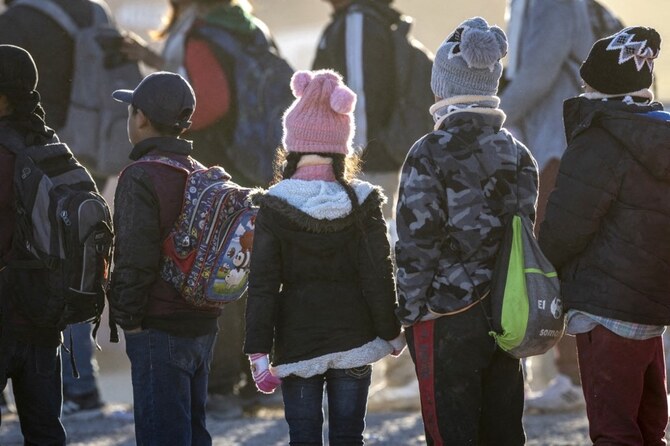The Trump administration recently made a controversial decision to halt legal assistance for unaccompanied migrant children arriving in the United States. The move, which ordered subcontracted legal organizations to stop providing aid, sparked widespread outrage. However, following immense public pressure and advocacy efforts, the administration reversed its decision, allowing these crucial services to continue.
But why was this decision made in the first place? And what does the reversal mean for the future of legal protections for migrant children?
Why Did the Trump Administration Reverse Its Decision?
Despite the lack of an official explanation for the sudden reversal, it is clear that public backlash played a crucial role. Immigration advocacy groups, legal experts, and concerned citizens mobilized quickly to oppose the move. Within just 48 hours, over 15,000 letters were sent to Congress demanding the reinstatement of legal aid services for unaccompanied migrant children. This overwhelming response sent a strong message to policymakers that these vulnerable children should not be left to face complex immigration proceedings alone.
The reinstated $200 million federal contract is critical in ensuring legal representation for approximately 26,000 migrant children, while also providing legal education to an additional 100,000. Without these resources, children—many of them extremely young—would be left defenseless in immigration courts, significantly increasing their risk of deportation.
What Are Advocates Saying About the Reversal?
While immigration rights groups welcomed the decision, they remain concerned about future threats to legal protections for migrant children. Shaina Aber, executive director of Acacia, emphasized that this fight is far from over.
“This is a critical moment to ensure that no child is forced to navigate the immigration system alone,” Aber stated.
The legal aid program is part of a five-year contract, but its renewal is reviewed annually by the federal government. With the next funding deadline set for March, there are growing fears that the administration may attempt another round of cuts.
Michael Lukens, executive director of the Amica Center for Immigrant Rights, highlighted the ongoing risks faced by migrant children.
“To even consider removing these legal protections in the first place is deeply troubling,” Lukens said.
Why Is Legal Aid for Migrant Children So Important?
Unaccompanied migrant children often arrive in the U.S. after fleeing violence, poverty, or human trafficking in their home countries. Many seek asylum or special immigration status under laws designed to protect them. However, without proper legal guidance, these children are left vulnerable to deportation, often without fully understanding their rights or how to present their case in court.
The 2008 Trafficking Victims Protection Act mandates legal protections for unaccompanied minors, ensuring they have pathways to seek asylum or other legal statuses. This law recognizes that children—especially those who have suffered trauma—need proper legal representation to navigate the immigration system effectively.
Without access to legal aid, these children would be forced to face highly complex legal proceedings without a lawyer, significantly reducing their chances of staying in the U.S.
What’s Next? The Fight to Protect Migrant Children Continues
Wendy Young, president of Kids in Need of Defense (KIND), stressed the importance of long-term protections for migrant children, urging the government to ensure stable funding for these essential services.
“We urge the administration to stay this course and continue funding these essential services,” Young stated.
Although the decision to restore funding is a victory, advocates remain on high alert. With another contract renewal deadline approaching, they fear that legal protections for migrant children could once again be put at risk.
For now, immigration rights groups and legal aid organizations are preparing to fight for continued funding, ensuring that no migrant child is left without the legal support they desperately need. The battle for justice and protection for these vulnerable children is far from over.

